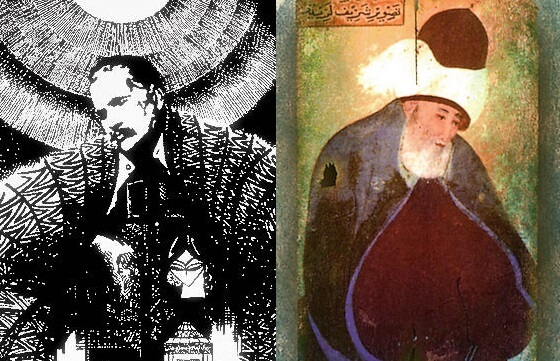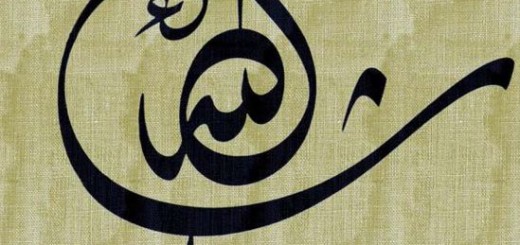The Curious Case of ending of Rumi’s Masnavi
Persian (Farsi) is regarded as the language of beautiful verse and it is no surprise that Persia witnessed some of the world’s greatest poets including Hafiz, Shaykh Saadi, Hakim Sinai and Faridudin Attar to mention a few. Each of these mystic poets gained immense popularity for their Masnavi, which are Farsi couplets verses that end with rhyming words.
Hafiz became famed for his legendary Diwan-e-Hafiz, Sinai became known for Hadiqa, and Saadi’s Gulistanis considered a textbook in Iran for fables with moral lessons.
However, it is Rumi’s immortal Masnavi that remains the most admired, researched and recited Masnavi of all. Rumi’s verses are quoted all over internet and social media everyday today (despite many remaining unverified). Even after 750 years, Masnavi is one of the best selling titles and its sales keep growing on Amazon.
Rumi’s Masnavi is referred as Masnavi Maanvi, which means Masnavi with Deeper Maa’na(meaning), as it narrates stories which has deeper mystical nuances and moral lessons.
Masnavi, similar to other oriental masterpieces such as Alif Laila, derives and loops in stories within stories hence it seems a never ending fable.
Rumi was a true genius, not only for writing exceptional verse, but the way he concluded Masnavi, a long poem comprising 25,000 couplets (50000 verses).
The last story tells of a dying father who have three sons and his last wish is that the laziest one gets his entire inheritance. The Qazi (Judge) calls all three and ask them to narrate an example that proves their sloth is of the greatest level, hence becomes the rightful owner of entire bequest.
However, Rumi never completed the narrative of sons , which can also be interpreted as evidence of laziness, since they cannot be bothered to speak!
The final verses reveal his son Sultan Walad’s plea to complete this story, and lift the veil regarding who of the three sons was the recipient of the bequest.
However, Rumi categorically declares that his time has come to an end, as quoted by following verses :
باقی این گفتہ آید بے زبان
درد دل ھر کس کہ دارد نور جهاں
Whoever is enlightened in their Inner Being
The remaining part of Masnavi will enter them by its self
Many authors, tried to emulate Rumi’s Masnavi in the same vein, which was their attempt to validate the prediction of Rumi. Such works include works of Hazrat Ilajhi Baksh Kandhlvi and Maulana Shaykh Muhammad Thanvi.
However, per critics, the most exceptional farsi Masnavi that Rumi inspired was Javed Nama by Dr. Allama Iqbal, who is fondly called Iqbal Lahori in Iran.
Dr. Iqbal was a doctor of philosophy from Trinity College as well as the greatest poet of his era. In Javed Nana, Iqbal makes Rumi his guide and travels many celestial worlds, heavens and hell and meet many Muslim notables such as Mansoor Alhaaj, Sultan Tipu, Ghalib as well as supervillain such as Pharaoh and Iblees (Satan).
Iqbal concludes his Masnavi with advice and prayers to his son Javed and all future generations his son. However he exclaims there is one secret of enlighment that he is unable to convey since words fail him when tries to ink. Iqbal ends his message by asking him to find secret by following the footsteps of Rumi.
گرچہ من صد نکتہ گفتم بے حجاب
نکتہ ے دارم کے ناید دار کتاب
گر بگویم می شود پیچیدہ تر
حرف و صورت اورا کند پوشیدہ تر
سوز او را از نگاہ من بگیر
یا ز آ ہ صبح گاہ من بگیر
Though I have elaborated hundreds of points, there is one that cannot be unveiled
Becaue when I try to reveal it, it keeps complicated
So discover it from my insight or find it in the prayers of early mornings.




